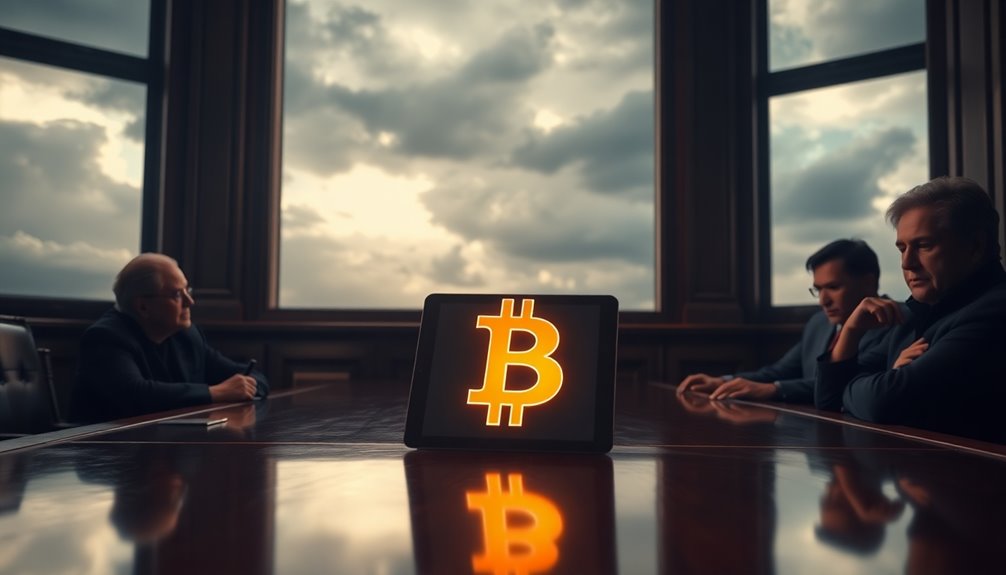As El Salvador's lawmakers engage in debates over new cryptocurrency regulations, you might wonder what this means for Bitcoin's status in the country. Concerns about its effectiveness as legal tender are surfacing, especially with the U.S. dollar still dominating. The decisions made in these discussions could reshape the future of Bitcoin in El Salvador. What implications could this have for adoption and government policy?

As El Salvador stands at the forefront of the global Bitcoin debate, you might wonder how the country's ambitious experiment with cryptocurrency has unfolded since its historic adoption as legal tender in September 2021.
With President Nayib Bukele's administration backing this landmark decision, the Legislative Assembly passed the law, aiming to boost financial inclusion and reduce remittance costs. The government even took the bold step of investing ₿400, worth about $20.9 million at the time, and introduced the Chivo wallet to facilitate transactions.
However, the ambitious vision has faced significant challenges. While the initial excitement around Bitcoin created a buzz, the reality is that adoption has been far from universal. In fact, by 2024, 92% of Salvadorans reported they weren't using Bitcoin for transactions, largely because the economy continues to function primarily on the U.S. dollar, which has been the official currency since 2001.
Despite the promise of improved remittance processes, many found that high transaction fees undermined this goal. Surveys show that most Salvadorans still prefer the stability of the dollar over Bitcoin.
The International Monetary Fund (IMF) has expressed concerns about El Salvador's Bitcoin policies, highlighting financial stability risks. As part of the conditions for a $1.4 billion loan, the IMF required the country to mitigate these risks, leading to amendments in the Bitcoin law. These amendments included that Bitcoin can no longer be used for tax payments or settling government debts.
These changes have made Bitcoin use voluntary for businesses and individuals, removing the requirement for mandatory acceptance. While Bitcoin retains its legal tender status, it's no longer classified as a currency, and its use for tax payments or government debts has been eliminated.
Despite these setbacks, the government remains committed to Bitcoin. It continues to purchase and hold Bitcoin, increasing its reserves to over 6,000 BTC. Officials believe that Bitcoin's value will rise in the long term, supporting their investment strategy.
However, critics argue that the management of these reserves lacks transparency, posing economic risks to the country.
Amidst these developments, lawmakers are now debating new rules that could further shift the landscape of Bitcoin in El Salvador. As they consider these changes, the future of Bitcoin's status in the country hangs in the balance, leaving you to ponder whether El Salvador's bold experiment will ultimately succeed or falter.









